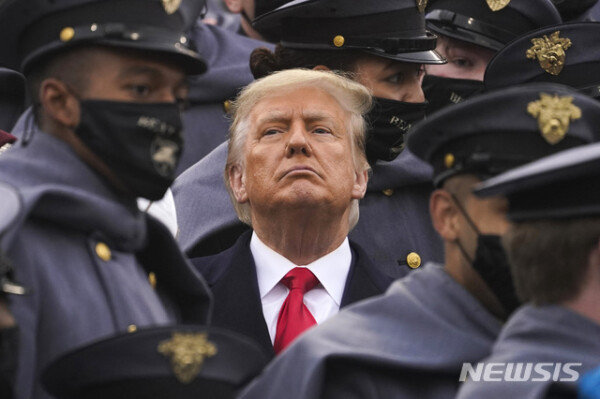Uber waits in London for doomsday, with its competitors waiting
Lhe coronavirus pandemic has been brutal for transport companies, not only in Spain, but throughout the world.
At the height of the crisis, Uber’s demand for rides fell 80 percent and revenue fell 29 percent year-on-year to $ 2.2 billion. The company took to the streets 3,700 employees during the pandemic.
As Uber struggles to contain losses, its future in the UK has never been more out of its control. Now wait for next month, doomsday.
On September 14 he will finally face Transport for London in court to fight the revocation of his London license for failure to comply with passenger safety measures, after the hearing scheduled for July 6 was delayed due to the coronavirus.
That same month, he will likely receive a Supreme Court ruling determining whether his drivers can continue to be classified as self-employed or are employed, entitled to basic benefits such as vacation pay, minimum wage and social security.
These are the costs that Uber cannot afford, even before the coronavirus crisis.
The Supreme Court case is an assessment of how Uber operated in 2016, and since then it says it has made “fundamental changes” to give drivers more flexibility.
The company also takes refuge in facial recognition software and account sharing detection as means to appease Transport For London’s demands. (Both measures were rejected in last minute negotiations with TfL last year.)
If he wins both legal battles, he could still end speculation about his future in London and avoid lengthy court battles against a major transport regulation.
If the Supreme Court case is dismissed, it could also prevent drivers from filing future lawsuits against the company.
The future of the union that represents them, the App Drivers and Couriers Union, is conditional on the majority of its members being classified as “employees”.
But if Uber loses any of the cases in court, it could be the end for the company as it tries to recover from the crisis.
If you lose both, it could be the beginning of the end for Uber in the UK.
“That would completely ruin Uber’s business. That would destroy them completely.
The company’s parallel investment in driverless vehicles is unlikely to pay off, and its Uber Eats arm has too much competition in the UK to make up for losses in transport.
Uber’s new plan to take over tech company Autocab, which connects riders to taxis in areas where Uber doesn’t currently operate, could allow it to reach thousands in places like Oxford, Tunbridge Wells, Canterbury or Northampton for the first time. , but hardly would. for loss of London revenue.
Top rivals have long dreamed of knocking Uber out of the top spot in the UK capital.
That moment may have finally come. And as Uber’s legal dates loom and post-lockdown trips spike again, major rivals have been forging partnerships and finalizing mergers to fight for a chance to get rid of Uber.
They all fight with one goal, to destroy the public taxi service
The battle over London’s passenger transport market is unsustainable
Your goal is to end all competition and become the monopoly.
Ola, Bolt and Kapten, probably Uber’s three biggest rivals, have expressed their ambition to become the leading firm in London.
But this game is getting more difficult as rival new apps continue to flood the market.
With these transportation applications, you just don’t see the business model that leads to profits, other than monopoly.
These companies are using unsustainable methods of concessions, gifts and new features to attract both customers and passengers.
Free Now
The application Free Now completed its merger with Captain last week, a move it says makes it London’s second-largest operator.
“If Uber loses the license, we are ready to be number one,” says Mariusz Zabrocki, UK General Manager of Free Now.
“Obviously that would be a very big event because suddenly we have millions of clients looking for alternative options. And that is something for which we are prepared.
The post-lockdown recovery has been much faster for Free Now than the competition, Zabrocki says, after the company was hit by drops of 60 to 95 percent in shipping volumes in its markets in April.
Free Now is the former My Taxi, the service operator company that taxi drivers qualify as «harmful to the taxi industry«.
Thousands of taxi drivers around the world have abandoned the Free Now application considering it allied to the VTC vehicle sector.
In October of last year, Munich taxi drivers gave up working with the company. In Dublin, in June of this same year, a large protest was organized against the old My Taxi for the conditions in which it operated.
On the other hand, earlier this year, the MyTaxi platform, which changed its name to Free Now, hired the Garrigues law firm in Spain, which has advised Vector Ronda and Prestige and Limousine, the heads of the VTCs.
Ola
Last week, Ola, backed by SoftBank, which launched in London in February 2020, partnered with taxi company Gett, which offers corporate clients rides via taxi service.
Ola, which was forced to cut 35 percent of its workforce during the crisis, can take advantage of Gett’s customer demand to make up for any shortfall in consumer demand.
Gett and Ola say they have seen an increase in corporate demand in recent weeks after lockdown restrictions were eased in London.
Gett
Gett, which does not compete directly with Uber or other transport companies in the UK, could give Ola a significant strategic advantage with a client roster that includes a third of Fortune 500 companies, in the same way as its strategic partnership. helped Lyft in America.
Precisely, the problem of transferring customer lists is what the Elite Taxi Barcelona Association has been warning that may happen with Free Now in the future, and that is that customers who now work with the Free Now application, are used to “Transfer” them to the Cabify and Uber companies, something that was already denounced in the 2019 Mobile Word Congress edition.
Gett chose Ola as a partner not just because of the UK, but because of the other markets in which it operates, such as India and Australia, where its clients also have operations, says Gett CEO Dave Waiser.
They argue that they offer much more flexibility for drivers to use whatever app they want at any time, meaning they are clearly autonomous. Ironically, this is also Uber’s argument.
Things have changed since Uber first took over London entry in 2012.
Bolt
Bolt It is the only transport company offering a significant level of competition to Uber in the UK.
When Bolt relaunched in London in June 2019, he never had a moment like Ola is having right now.
The Bolt company was harshly criticized by the taxi sector in Madrid, due to an advertisement that was broadcast on a taxi radio program.
TaxiFy, which changed its name to Bolt, has been punished by taxi drivers all over the world, from South Africa to Romania, via London, Nigeria, Mexico or Poland.
On the other hand, Bolt faces a lawsuit in London for Workers’ Rights, promoted by Andrei Donisa, after having expelled him from the platform for refusing to take many services.
Restricted areas
As more traffic controls are established in London, taxis will be a much faster alternative to VTCs, as they are allowed to circulate on semi-pedestrian or bicycle and bus-only streets, as well as Bus lanes.
Taxi drivers are not enthusiastic about the prospect of private transport companies taking advantage of these advantages.
States that Free Now has become persona non grata in the taxi trade after merging with Captain, because taxis refuse to compete directly with VTC drivers.
Gett has so far escaped a similar backlash. Instead, taxi drivers are trying to compete with their own offerings, including Sherbet, Taxi App, and Cab.App.
“Will we do better than the disruptive industry? I hope so ”, he says. It’s about time we took a break when we got kicked to the head.
But, as a result of the pandemic, London’s fragmented and divisive transport sector is at risk of collapsing.
As Uber and its rivals share drivers, they have engaged in price wars as their only way to gain market share, a totally unsustainable strategy in the face of a potential spike in coronavirus cases.
The game has fundamentally changed. At the end of this crisis, the winner will not be the one with the most market share, it will be the one that remains standing.
The coronavirus has reduced the market massively. Everyone is fighting to become the dominant player.
And only when they become the dominant player can they reap the kind of benefits they need to survive.
Uber awaits doomsday in London



